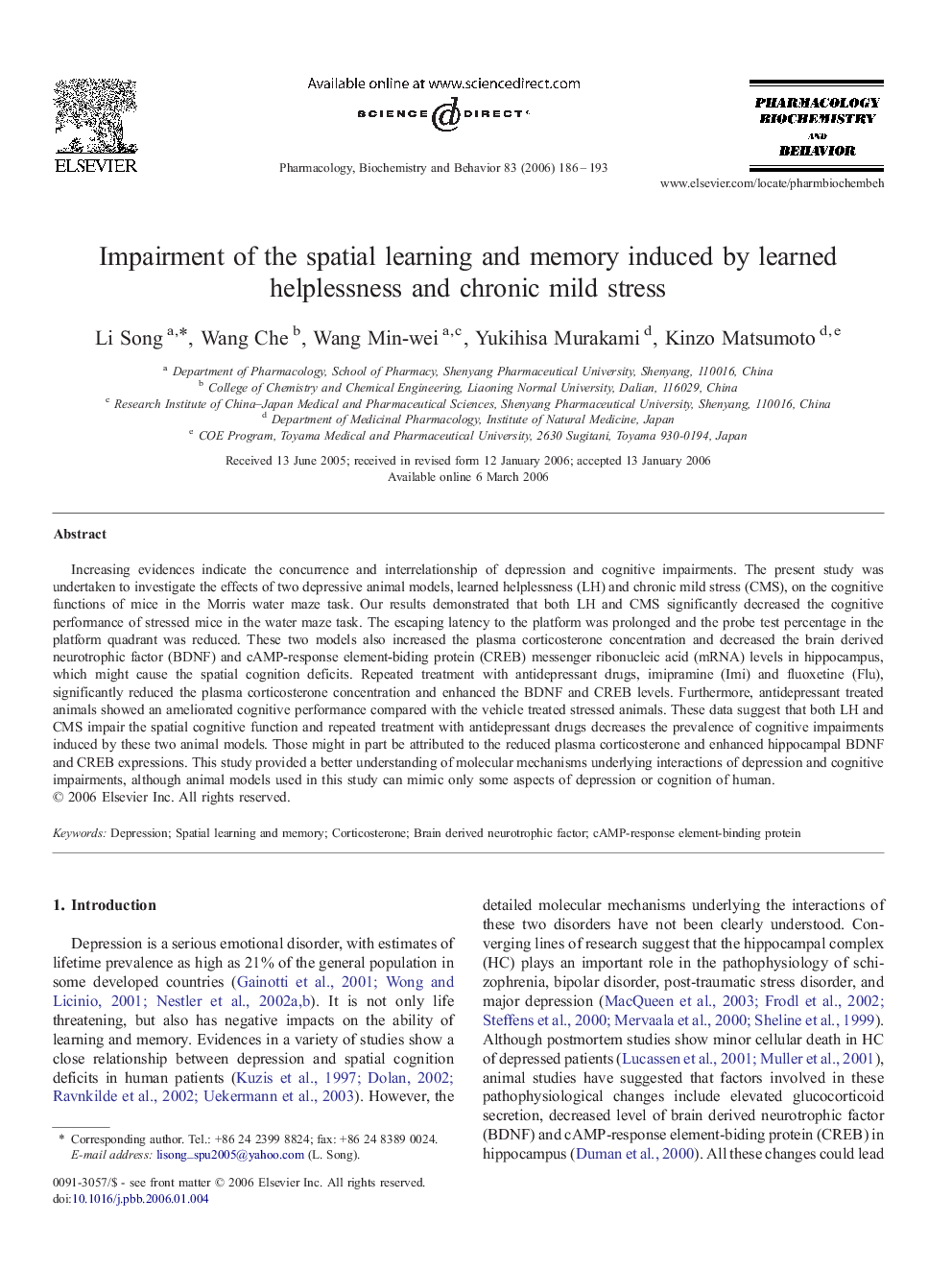| Article ID | Journal | Published Year | Pages | File Type |
|---|---|---|---|---|
| 2014595 | Pharmacology Biochemistry and Behavior | 2006 | 8 Pages |
Increasing evidences indicate the concurrence and interrelationship of depression and cognitive impairments. The present study was undertaken to investigate the effects of two depressive animal models, learned helplessness (LH) and chronic mild stress (CMS), on the cognitive functions of mice in the Morris water maze task. Our results demonstrated that both LH and CMS significantly decreased the cognitive performance of stressed mice in the water maze task. The escaping latency to the platform was prolonged and the probe test percentage in the platform quadrant was reduced. These two models also increased the plasma corticosterone concentration and decreased the brain derived neurotrophic factor (BDNF) and cAMP-response element-biding protein (CREB) messenger ribonucleic acid (mRNA) levels in hippocampus, which might cause the spatial cognition deficits. Repeated treatment with antidepressant drugs, imipramine (Imi) and fluoxetine (Flu), significantly reduced the plasma corticosterone concentration and enhanced the BDNF and CREB levels. Furthermore, antidepressant treated animals showed an ameliorated cognitive performance compared with the vehicle treated stressed animals. These data suggest that both LH and CMS impair the spatial cognitive function and repeated treatment with antidepressant drugs decreases the prevalence of cognitive impairments induced by these two animal models. Those might in part be attributed to the reduced plasma corticosterone and enhanced hippocampal BDNF and CREB expressions. This study provided a better understanding of molecular mechanisms underlying interactions of depression and cognitive impairments, although animal models used in this study can mimic only some aspects of depression or cognition of human.
